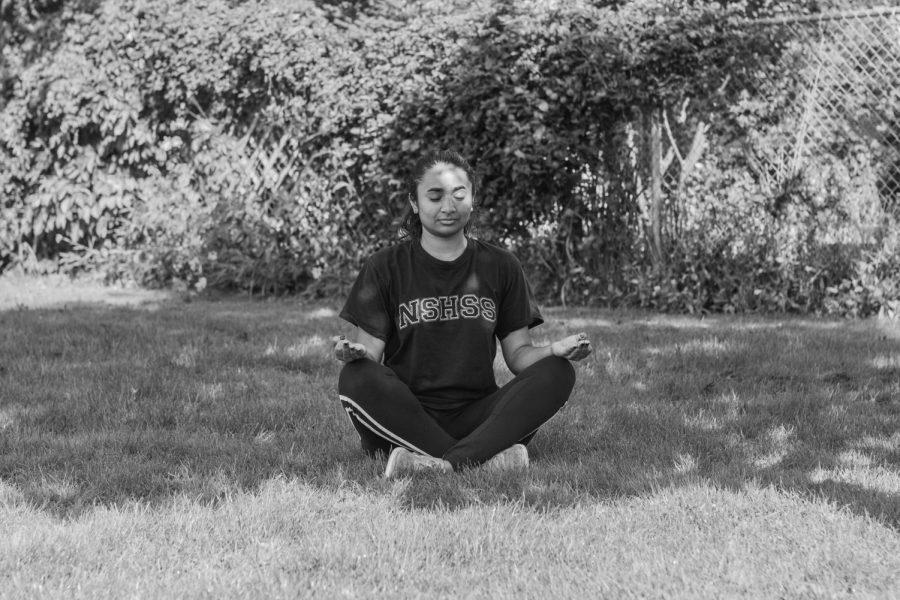Self Care Sunday: A beginner’s guide to meditation
January 19, 2020
Self care can take an indefinite amount of forms, differentiating from every individual. Though there are some methods that seem to sustain as relaxation go-to’s all around the world— meditation included. So, let’s break it down.
Med·i·tate
Verb
‘think deeply or focus one’s mind for a period of time, in silence or with the aid of chanting, for religious or spiritual purposes or as a method of relaxation.’ (Oxford)
They key here is to focus and clear the mind. I know it seems impossible to think of nothing, so instead try to focus on a specific; how your legs feel while you’re sitting, the feeling of your clothes on your skin, your lungs expand and contract with every breath. By focusing on one thing you can begin to block out all the static that would otherwise be buzzing around.
Though meditation is often considered a ritual, it doesn’t have to be religious. Try to strip away the stigma of a circle of monks sitting in complete silence for hours, though that is great if you have the patience. Now try to imagine this as a mindfulness exercise instead, just like taking deep breaths or going on a walk.
If sitting completely still seems out of the question, there are other ways to get into a relaxed state of mind. Try this:
Sit comfortably in a chair, feet flat on the floor, back straight but not over-extended.
Feel the way your heels are planted firmly on the ground.
Breathe in and push that breath down through your body.
Let your shoulders relax into that exhale and hold this position.
Take as much time as you need here to gather your thoughts and become grounded.
An exercise like this only takes a couple minutes, and it can really reset your pace for the rest of your day. Try doing this in the morning, or right when you sit down for a class or work shift. Try sitting in a variety of positions until you find one that feels most effective for you.
Some find the silence to be daunting, so listening to some soft music while you reflect is very helpful. Try something with no lyrics or minimal vocals. Instrumental playlists on Spotify are readily available and in excess if you don’t want to curate your own.
Check out some favorites; Lane 8, White Noise, Perfect Concentration
Meditation is more than just learning to sit still for amounts of time. If you find yourself less reliant on philosophy and more on science, there are proven benefits of relaxation methodology.
Healthline, a publication all about physical and mental well-being, talks about 12 positive gains from meditation including lengthening attention span, reducing memory loss, fighting addictions and even promoting better sleep. As college students, we can never have too much sleep.
GAMIA, a company based on mindfulness, gives some good advice for beginners just starting their meditation journey. One of my favorite quotes by them is:
“Over time, you can become more aware of the human tendency to quickly judge an experience as good or bad, pleasant or unpleasant. With practice, an inner balance develops”
After reading this you may realize that you yourself have a habit of judging situations in a very binary way. It is good to think of life as a spectrum, there are a lot of times when you may fall to one end or the other, but balance in the middle is where you should aim for. Practices like meditation can start to teach you the patterns of your own thought which can lead to changing them, if that is something you seek.
“To put it as an Eastern philosopher may say, the goal of meditation is no goal. It’s simply to be present.” GAMIA






